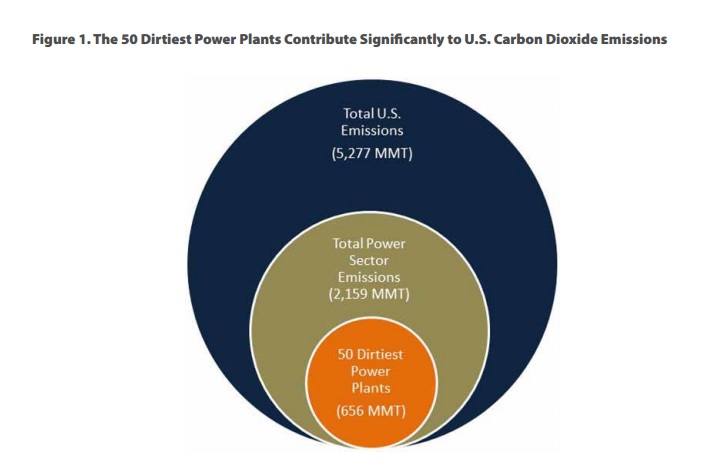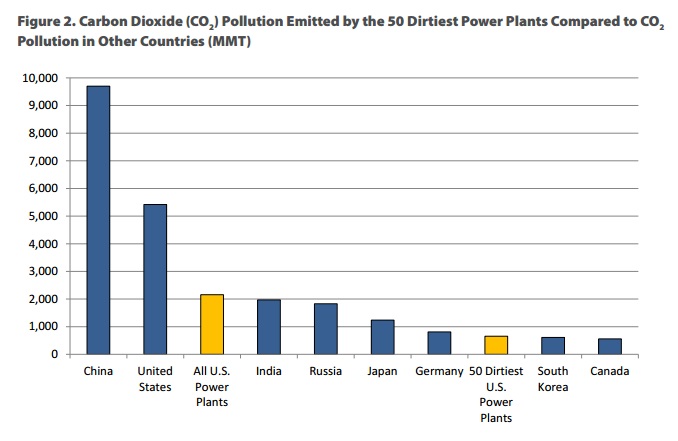New EPA Carbon Rule Will Impact Emissions Worldwide
The U.S. EPA just announced new carbon emissions standards for the nation’s existing power plants. The new standard will cut emissions from these plants by 30 percent below 2005 levels by 2030, finally taking a serious step toward cleaning up one of the biggest sources of global warming pollution, not just in the United States, but worldwide.
by Jordan Schneider
The U.S. EPA just announced new carbon emissions standards for the nation’s existing power plants. The new standard will cut emissions from these plants by 30 percent below 2005 levels by 2030, finally taking a serious step toward cleaning up one of the biggest sources of global warming pollution, not just in the United States, but worldwide.
The biggest, oldest and dirtiest U.S. power plants emit globally significant amounts of carbon dioxide. As we found in our 2013 report, America’s Dirtiest Power Plants, about 30 percent of all the carbon pollution from power plants comes from just 50 facilities – a tiny fraction of the nearly 6,000 plants in the United States. (See Figure 1)

These 50 power plants produced approximately 2 percent of the world’s carbon dioxide emissions. In fact, if they were an independent nation, they would be the seventh-largest emitter in the world, behind Germany and ahead of South Korea. (See Figure 2)

Cleaning up those and other dirty power plants will go a long way toward achieving the deep cuts in carbon pollution necessary to meet the nation’s greenhouse gas reduction targets. The Obama administration has already made significant progress on climate through other bold federal initiatives, such as nationwide adoption of the Clean Cars Program, which according to our research has already helped reduce vehicle carbon dioxide pollution equivalent to that produced by 8 million vehicles in a year.
There is plenty more for the United States to do to lead the world in preventing the worst impacts of global warming. But today’s action by the Obama administration is a rare moment of hope and a stepping stone to a cleaner and healthier future for Americans and the world.
